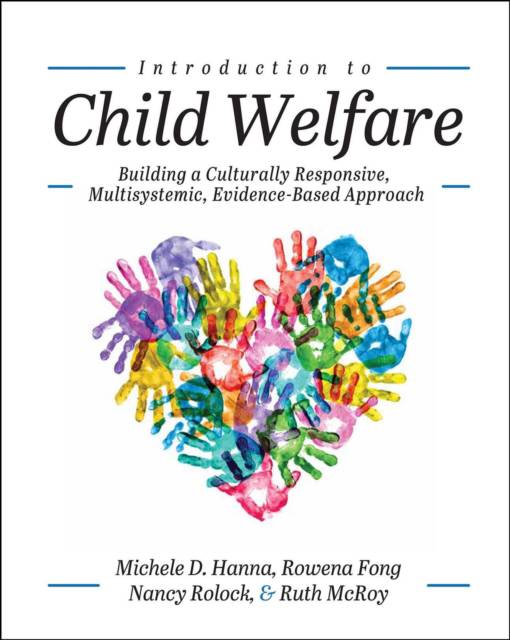
- Afhalen na 1 uur in een winkel met voorraad
- Gratis thuislevering in België vanaf € 30
- Ruim aanbod met 7 miljoen producten
- Afhalen na 1 uur in een winkel met voorraad
- Gratis thuislevering in België vanaf € 30
- Ruim aanbod met 7 miljoen producten
Introduction to Child Welfare
Building a Culturally Responsive, Multisystemic, Evidence-Based Approach
Michele D Hanna, Ruth McRoy, Rowena FongOmschrijving
Introduction to Child Welfare: Building a Culturally Responsive, Multisystemic, Evidence-Based Approach helps future and current child welfare professionals cultivate a practice that employs an intersectional approach and embraces the concept of cultural humility. This dynamic approach recognizes the intersectionality and diversity of children, youth, and families, and empowers workers to engage with and consider myriad identities and cultural experiences.
Opening chapters provide an overview of the history of the child welfare and foster care system in the United States; our modern multisystemic approach to child welfare practice; and the history and current status of evidence-based child welfare practice. Additional chapters address the impact of trauma on children, youth, and families, as well as multidimensional engagement in child welfare.
The text covers various populations involved in child welfare, including domestic children of color, native peoples, immigrant children and families, victims of human trafficking, LGBTQIA youth, and more. Each chapter provides an overview of the history of child welfare interventions and culturally responsive practices with these populations, as well as relevant policies and current practices.
Introduction to Child Welfare is an ideal text for future and current child welfare professionals who wish to improve their personal practice.
Specificaties
Betrokkenen
- Auteur(s):
- Uitgeverij:
Inhoud
- Aantal bladzijden:
- 520
- Taal:
- Engels
Eigenschappen
- Productcode (EAN):
- 9781516533718
- Verschijningsdatum:
- 14/08/2020
- Uitvoering:
- Paperback
- Formaat:
- Trade paperback (VS)
- Afmetingen:
- 203 mm x 254 mm
- Gewicht:
- 1020 g

Alleen bij Standaard Boekhandel
Beoordelingen
We publiceren alleen reviews die voldoen aan de voorwaarden voor reviews. Bekijk onze voorwaarden voor reviews.











